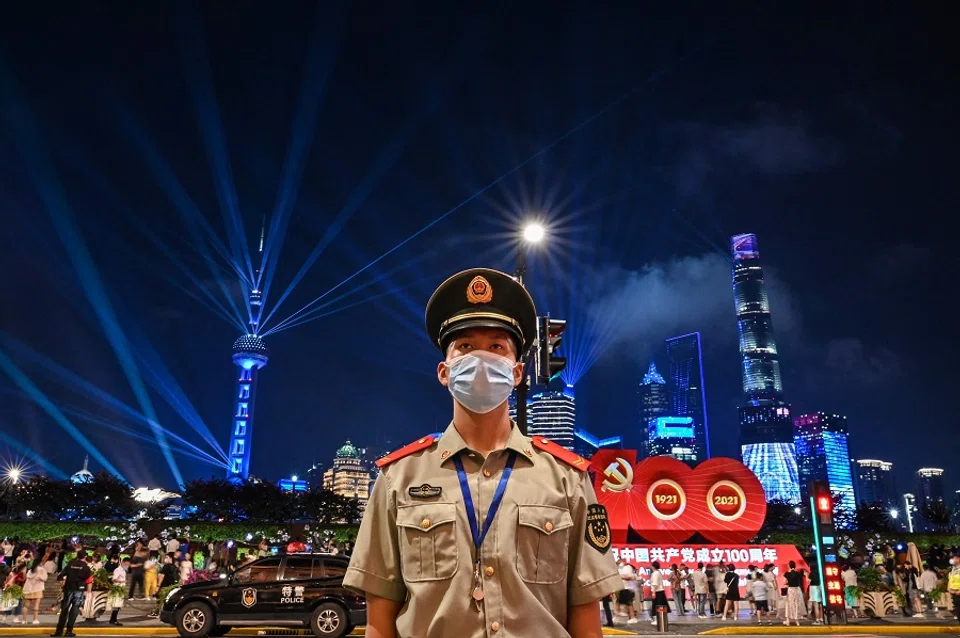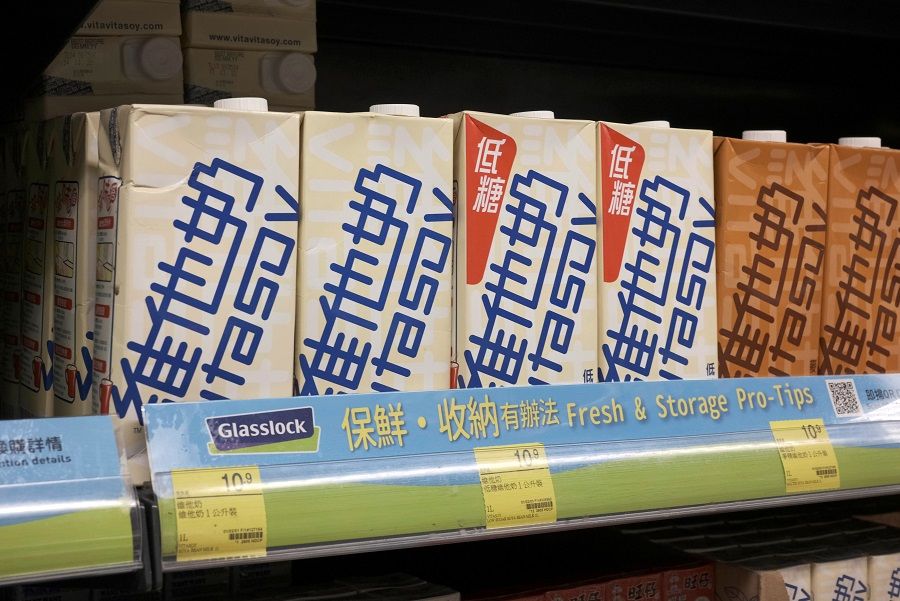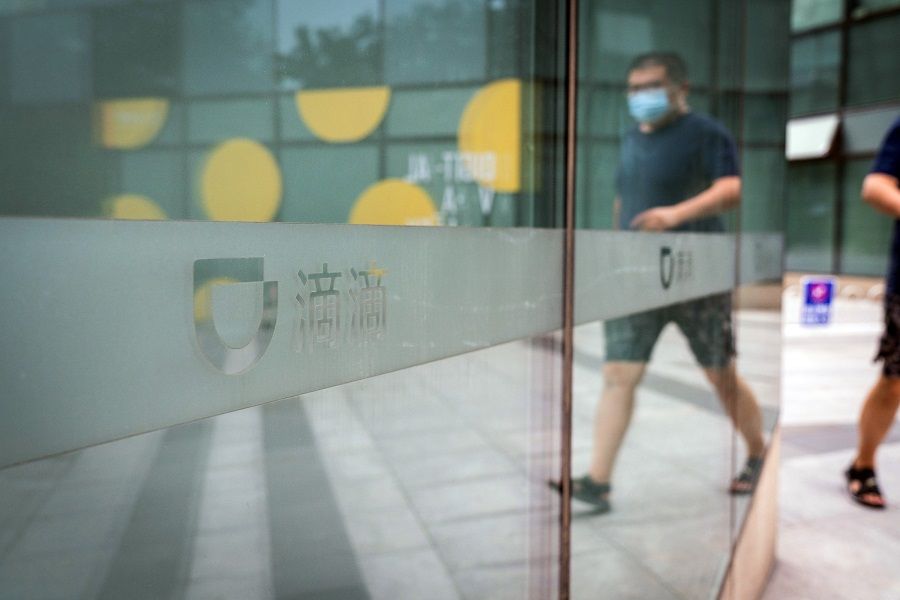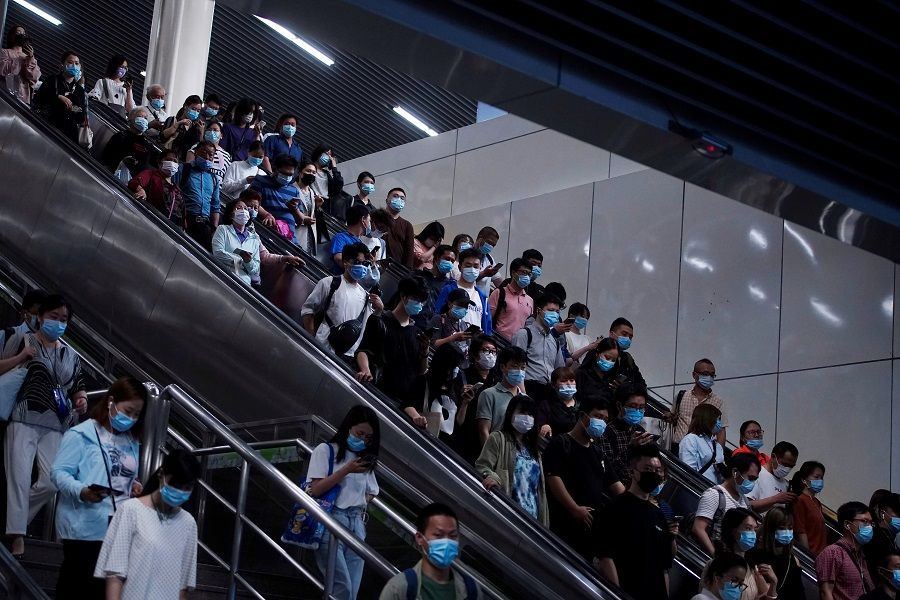When doing business in China, beware of patriotic netizens

From the days leading up to the 100th anniversary of the Chinese Communist Party (CCP) on 1 July until today, stories about China have dominated the headlines. Some of the events are inherently tense, involving national security, cybersecurity and China-US competition; others ignited explosively before being catapulted to new highs by social media; yet others are focused on Chinese netizens.
In these dramas starring politics, finance and online public opinion, the firm stance of Chinese officials and the dogged, even ferocious patriotism of Chinese netizens have achieved notable outcomes.
Curious incidents
First, the "lone wolf" terrorist act committed on the night of 1 July, which also marked Hong Kong's handover anniversary. A Hong Kong man stabbed a police officer from behind before committing suicide. The public security matter quickly escalated because the man's company, Vitasoy, released a statement calling his suicide "unfortunate". This drew the ire of mainland Chinese netizens who demanded that "Vitasoy get out of Chinese mainland". Mainland Chinese celebrities also terminated their contracts with Vitasoy, and the latter's share price plummeted 15% on 5 July. Vitasoy's human resource director has also since left the company.

If this "lone wolf" terrorist act gives a warning to Vitasoy about the perils of angering Chinese netizens, what ride-hailing platform Didi Chuxing has had to face in the past week shows that the stance adopted by Beijing officials is inviolable and that Chinese netizens are skilled at gossiping and doxxing.
On the eve of the CCP's 100th anniversary, Didi went public in the US on 30 June, running the risk of surrendering China's sensitive data to the US. Sources say that Beijing higher-ups had clearly requested Didi to postpone its IPO plans and not choose a date so near to 1 July. But Didi went ahead with the plan anyway and is facing harsh punishments as a result.
When the Cyberspace Administration of China ordered Didi to have its app taken down, Didi COO Liu Qing, her father Liu Chuanzhi, and grandfather Liu Gushu were doxxed by Chinese citizens. Netizens strung together a series of relevant and irrelevant events - even the late Liu Gushu's role in helping Vitasoy get its trademark registered in the mainland - and called three generations of the Liu family "traitors to the country".
In Chinese culture, history is very important and certain dates have a special meaning for Chinese officials and the people. If one is unaware and accidentally pushes some hot buttons, the consequences may be dire.

Following the Liu family, Japanese company Sony was the next "victim" of these dramatic events. The company had organised a launch event for its new product on 7 July at 10 pm, but netizens pointed out that the date of the event coincided with the July 7th incident or Marco Polo Bridge incident, which thus implied that Japan was humiliating or provoking China. This storm in a teacup incident only subsided after Sony apologised and cancelled the event.
The ultra-sensitive Chinese
Looking back at these events and the individuals who were affected such as the late Liu Gushu or the Vitasoy human resource director who lost his job, we can perhaps conclude that when doing business in China, one has to be extremely sensitive towards the choice of date, venue, and one's words. In Chinese culture, history is very important and certain dates have a special meaning for Chinese officials and the people. If one is unaware and accidentally pushes some hot buttons, the consequences may be dire.
My friend joked that if foreign enterprises wanted to run their business in China in peace, apart from complying with the rules and regulations, they may also need to have a modern divination guide and almanac at hand. In ancient times, the almanac (通书 Tong Shu) contained the laws of the 24 solar terms and their meteorological changes. A modern almanac could highlight historical events and help people decide if a certain day is an "auspicious" date for a holiday, paying respects to our ancestors, launching a new product, or opening for business. In addition, the almanac could also be customised for enterprises in specific countries - for example, Japanese companies would need to avoid dates that hint at the history of the Japanese invasion of China, while British companies would need to be alerted to other sensitive dates and topics.
Even Chinese companies will not be spared
While we were just talking in jest, if the current trend continues, Chinese enterprises would also need to be very careful. Over the past few years, there have been reports of enterprises allegedly humiliating China. Some of them could have been stuck between a rock and a hard place between domestic and external pressure, such as certain European and American enterprises that boycotted Xinjiang cotton to assuage domestic opinion. Other enterprises or individuals could be unaware of the severity of the situation, or like Sony, which most probably picked a wrong date by accident, simply unlucky.
However, at a time when the Chinese market is increasingly important but the confidence of the Chinese nation is not yet sufficiently strong, the price of offending Chinese public opinion is much higher.

Chinese enterprises are not immune to nationalist condemnation as well. In 2017, a salad restaurant located near the Memorial Hall of the Victims in Nanjing Massacre by Japanese Invaders was ordered to "undergo rectification" because its Chinese name "Da Kai Sha Jie" (大开沙戒) sounded like "open slaughter" and was seen as dishonouring the victims of the Nanjing Massacre.
In all fairness, any individual or enterprise running a business in a particular country should respect that country's history, culture and sentiments. However, at a time when the Chinese market is increasingly important but the confidence of the Chinese nation is not yet sufficiently strong, the price of offending Chinese public opinion is much higher. Some Chinese netizens are zealous about playing "police" and disciplining those they feel have disrespected China's "rules" or hurt its feelings.
On issues concerning national interest, following reviews carried out by Chinese officials, netizens themselves follow up with another round of "investigation". And from the perspective of the higher-ups in China, allowing some enterprises to lose a few hundred million or even billions of dollars is no big deal for the sake of safeguarding national interest.
Simply put, to do business in China or to maintain relationships with China, learning and adapting to Chinese rules and being sensitive to Chinese feelings will become increasingly important, and it will be harder to steer clear of politics. Reading the "Chinese seasons" is a must for all parties in large and small conflicts and can be seen as a sign of China's rise. But whether the people can adapt to it and how they actually feel about the situation is a story for another day.
